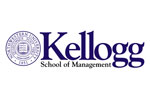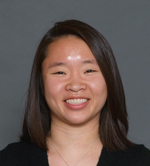-
Target Test Prep 20% Off Flash Sale is on! Code: FLASH20
Redeem
Recruiting Season in the Life of a Kellogg Student
 This week we are pleased to feature a special guest article by Angela Cheung, a first-year MMM student at the Kellogg School of Management. The MMM program is a special joint program between Kellogg and the Northwestern School of Engineering, where graduates earn both an MBA and a Masters of Engineering Management. Angela is also an active Beat The GMAT member, fielding questions in the Ask a Kellogg Student discussion thread.
This week we are pleased to feature a special guest article by Angela Cheung, a first-year MMM student at the Kellogg School of Management. The MMM program is a special joint program between Kellogg and the Northwestern School of Engineering, where graduates earn both an MBA and a Masters of Engineering Management. Angela is also an active Beat The GMAT member, fielding questions in the Ask a Kellogg Student discussion thread.
Since prospective students often have questions about the job search process, I wanted to share my internship recruiting experience as a first year Kellogg student. Although some of the steps are generally the same for other industries and jobs, I will caveat that this was my personal experience and will likely vary for different students.
Step 1: Exploration
The fall quarter is primarily used to learn more about different industries and job roles. For me, this included attending company presentations and networking nights, researching companies online, and talking to other Kellogg students who had worked or interned at companies I was interested in. Informational interviews with alumni were also very helpful to learn more about what its like to work at companies or in certain roles. I also attended treks: trips organized by Kellogg students, with the support of the career management center, to visit companies within a certain industry and geographic region. For example, the High Tech Trek took place during the first week of winter break and focused on high tech companies in the Bay Area and Seattle. By the end of the fall quarter, I had an idea of the types of companies and roles I wanted to pursue so that I could better focus my recruiting process. I decided to primarily pursue product management roles at high tech companies.
Step 2: Interview Preparation
[caption id="attachment_3539" align="alignright" width="150" caption="Angela Cheung"] [/caption]
[/caption]
Over winter break, I started writing cover letters for job postings through the Kellogg career network site as well as on company websites. During winter quarter, I participated in an interview prep group organized by Kelloggs High Tech Club. The interview prep groups are groups of 4-5 first year students who are led by a second year student who recruited in the same industry the previous year. My interview prep group leader provided helpful resources such as case frameworks, typical interview questions, key technology trends, and constructive feedback in mock interviews. I also set up additional mock interviews with other second year students. Lastly, I researched companies online, followed tech blogs, and spoke to Kellogg alumni and friends of friends that worked at the companies I was applying to.
Step 3: The Interviews
Most companies had two rounds of interviews, although there were sometimes multiple interviews within each round. Typical question types were behavioral (past experiences), fit (match between you and the company/role), and case (scenarios presented to see how you approach problem-solving). By spring break I had my internship offer!
My personal tips:
- Learn as much as you can: Even if you think you know what you want to pursue, coming to business school can be a great opportunity to learn about other paths, even if it just re-confirms what you want to pursue. Speaking to fellow students and alumni can be a great way to learn more about what its actually like at a company or in a specific role.
- Develop your story: For pretty much any job, an important factor in the interview process will be your passion for the role/product/company. Have a clear story of how your past experiences and skills, plus your business school experience, make you the right candidate. I was not a career switcher but for those that are, Ive heard from classmates that your story becomes that much more important how your past experiences, interests, and skills translate to the industry/role you are pursuing. Doing your homework about a company/industry and/or participating in relevant activities or classes is also key to demonstrating your knowledge and interest.
- Practice makes perfect: Interviewing is definitely a skill you have to practice in order to improve. Mock interviews can be very helpful, especially with peers that have interviewed with the companies previously and are familiar with their interview style.
- Know what you want: It can sometimes be easy to get swept up in the types of roles that many business school students pursue, so give some thought to what will be the right fit for you. Consider the experience you want for the summer, and also how this fits into your full-time recruiting plans (e.g. are there experiences or skills you want to get over the summer to better prepare you for your full-time job search?).
Best of luck!
If you'd like to ask Angela a question about recruiting or life as an MBA student, post your question in the Ask a Kellogg Student discussion thread on the Beat The GMAT forums.
Recent Articles
Archive
- April 2024
- March 2024
- February 2024
- January 2024
- December 2023
- November 2023
- October 2023
- September 2023
- July 2023
- June 2023
- May 2023
- April 2023
- March 2023
- February 2023
- January 2023
- December 2022
- November 2022
- October 2022
- September 2022
- August 2022
- July 2022
- June 2022
- May 2022
- April 2022
- March 2022
- February 2022
- January 2022
- December 2021
- November 2021
- October 2021
- September 2021
- August 2021
- July 2021
- June 2021
- May 2021
- April 2021
- March 2021
- February 2021
- January 2021
- December 2020
- November 2020
- October 2020
- September 2020
- August 2020
- July 2020
- June 2020
- May 2020
- April 2020
- March 2020
- February 2020
- January 2020
- December 2019
- November 2019
- October 2019
- September 2019
- August 2019
- July 2019
- June 2019
- May 2019
- April 2019
- March 2019
- February 2019
- January 2019
- December 2018
- November 2018
- October 2018
- September 2018
- August 2018
- July 2018
- June 2018
- May 2018
- April 2018
- March 2018
- February 2018
- January 2018
- December 2017
- November 2017
- October 2017
- September 2017
- August 2017
- July 2017
- June 2017
- May 2017
- April 2017
- March 2017
- February 2017
- January 2017
- December 2016
- November 2016
- October 2016
- September 2016
- August 2016
- July 2016
- June 2016
- May 2016
- April 2016
- March 2016
- February 2016
- January 2016
- December 2015
- November 2015
- October 2015
- September 2015
- August 2015
- July 2015
- June 2015
- May 2015
- April 2015
- March 2015
- February 2015
- January 2015
- December 2014
- November 2014
- October 2014
- September 2014
- August 2014
- July 2014
- June 2014
- May 2014
- April 2014
- March 2014
- February 2014
- January 2014
- December 2013
- November 2013
- October 2013
- September 2013
- August 2013
- July 2013
- June 2013
- May 2013
- April 2013
- March 2013
- February 2013
- January 2013
- December 2012
- November 2012
- October 2012
- September 2012
- August 2012
- July 2012
- June 2012
- May 2012
- April 2012
- March 2012
- February 2012
- January 2012
- December 2011
- November 2011
- October 2011
- September 2011
- August 2011
- July 2011
- June 2011
- May 2011
- April 2011
- March 2011
- February 2011
- January 2011
- December 2010
- November 2010
- October 2010
- September 2010
- August 2010
- July 2010
- June 2010
- May 2010
- April 2010
- March 2010
- February 2010
- January 2010
- December 2009
- November 2009
- October 2009
- September 2009
- August 2009